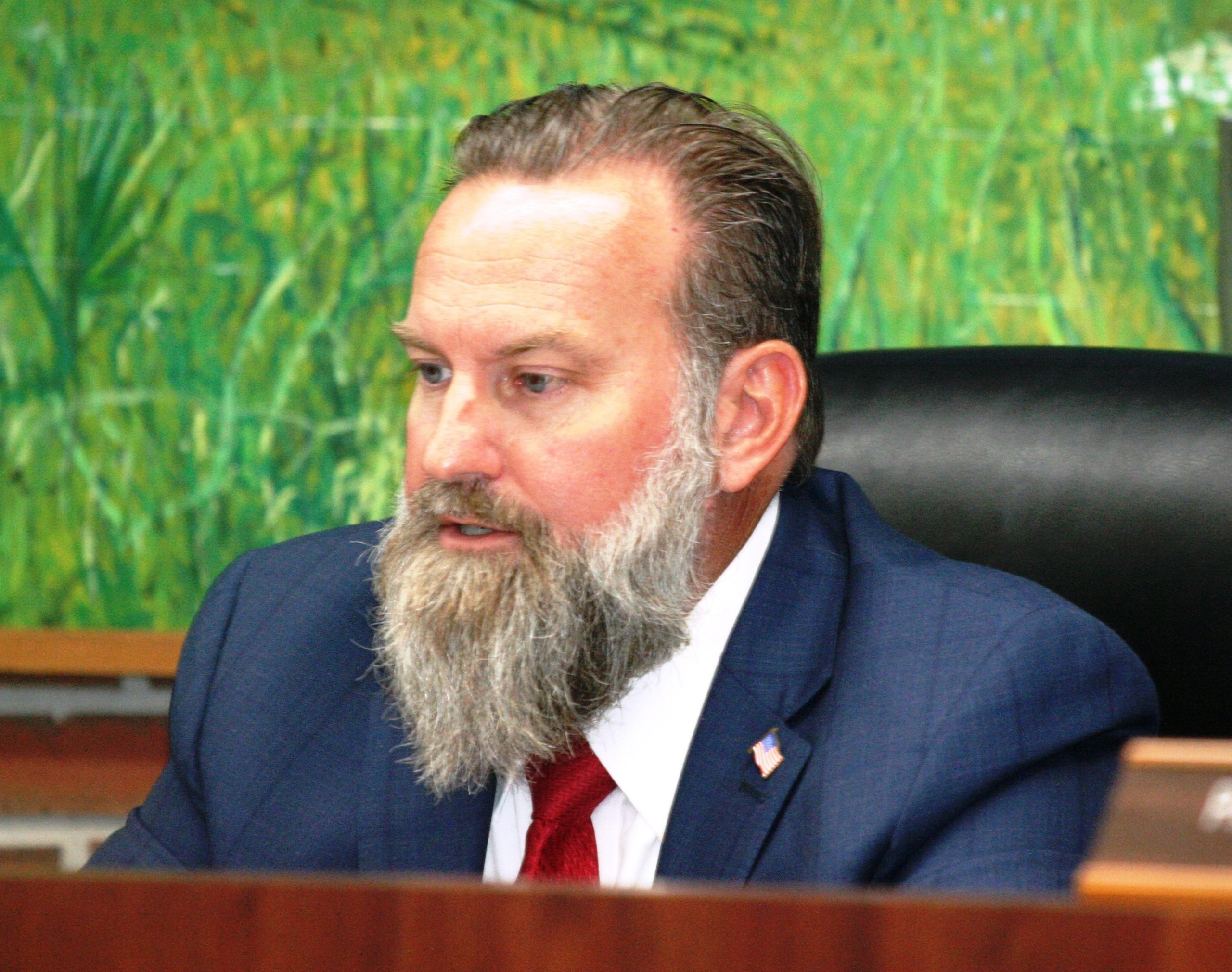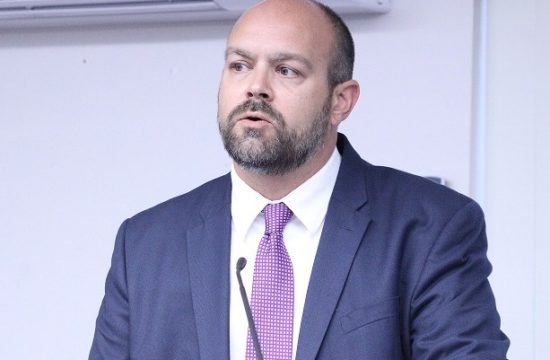Interview with Dr. Maggie Labarta, chief executive officer of Meridian Behavioral Healthcare.
By Terry Witt – Spotlight Senior Reporter – (Part III of Series Discussing Baker Acts)
The system used for Baker Acting Levy County public school students isn’t perfect.
The Baker Act requires that there is reason to believe the person is mentally ill and that their judgment is so impaired by their illness they don’t understand their own need for treatment.
Mental illness could mean a student attempted or threatened suicide or it could be the student appears to be talking to things that aren’t there or hearing voices that aren’t there or there’s some other reason to believe the person has a mental illness, said Dr. Maggie Labarta, CEO of Meridian Behavioral Healthcare.
“If the organ in your body that is in charge of making decisions and judgment calls is not functioning correctly, then your ability to make that determination can be impaired, so if I am hearing voices, I am hearing voices. That voice is real. The fact that you can’t hear it is your problem, not mine; so clearly I don’t realize I am ill. Those are the two critical thresholds. Everybody likes to ignore them, but they are the critical thresholds.”
Labarta said the two things people often skip over when evaluating a student for a Baker act are the need to establish that there is a indeed a mental illness and the student is too impaired to know it. She said the tendency is to go straight to the questions of whether, “they are danger to self and others, but it’s not just danger to self or others; it’s immediate,” Labarta said.
Improving Law Enforcement Skills
Labarta said Meridian is working on improving the assessment skills of law enforcement officers before a Baker Act occurs.
“At the school level more often than not it’s the resource officer (who Baker Acts the student) because schools don’t have licensed mental health professionals, or if the school has a social worker, anybody other than law enforcement out in the field who can initiate (a Baker Act), whether that’s a judge, a mental health professional or a doctor; they call law enforcement, and law enforcement by each county is the designated transporter of Baker Acts. They have them handcuffed in the back of the car because that is safety protocol for law enforcement,” Labarta said. “The statutes require law enforcement have a safety protocol. They don’t know what that person is capable of. Their standard practice is to handcuff.”
Labarta said Meridian makes sure a psychiatric evaluation occurs within 12 hours of the student being sent to a CSU. Even if the Baker Act occurs at a location other than school, or perhaps at night, a tele-evaluation can done electronically, “and they’re going to be face to face with a doc.”
She said it’s a 45 minute ride from Levy County to Meridian’s CSU in Gainesville.
“Handcuffs will calm a lot of people,” she said.
Held for 72 Hours
The initial evaluation will focus on what the clinician sees by looking at the student and talking to them, and what the clinician is told, which may include a statement from a law enforcement officer or a family member giving an account of how the student was acting before the decision was made to Baker Act them. The student may say they are feeling fine and they just want to go home, but the clinician and the clinician’s supervisor make the decision on whether the student stays at CSU.
“So we have 72 hours to determine what your full need for treatment is and that could mean emergency medication, it could include whatever we think might help us either better assess or help you be safe,” Labarta said.
At the end of 72 hours the student is released if CSU medical staff believes the child can safely go home. This goes for children and adults.
“At the end of 72 hours if we feel you are still unsafe, you still are a danger to self or other and it’s very clear to us that yes, you do have a mental illness and that your judgment around that illness is impaired we have two options,” Labarta said. “If we don’t think you are able to consent and you are unwilling to stay, we petition the court. At that point we have to make a case and you are appointed a public defender.”
“In the case of a child, the child has to sort of agree because they legally can’t consent obviously. If the parent says no, I want my kid out of here, we have the same options, we can go to the judge and say, Your Honor here is the situation. Here is what we see. In the vast majority of cases where we think the child needs to stay longer, the parent will agree. Sometimes when the parent won’t agree, there’s something going on at home that no one wants us to know about,” Labarta said.
The average length of stay at Meridian’s child CSU in Lake City is two to three days. In some cases it goes to five to seven days when children are in foster care. The longer stays can be as much as seven days, often because the child is in foster care and the foster parents can’t handle them.
“But the majority of Baker Acts are resolved in a five to seven day window,” Labarta said.
Angry Shooters
Labarta acknowledges that not all the young men involved in mass shootings around the nation are mentally ill.
“If you look at the majority of the violence, it’s typically young men who feel very alienated and very isolated who are very, very angry and that’s not a mental illness, that’s a social condition,” she said.
She acknowledged that the process of Baker Acting a child and transporting them in handcuffs to a Crisis Stabilization Unit is traumatizing to that individual. She said Meridian is introducing mobile response units to the Tri-county area in an effort to reduce Baker Acts.
“I think there are growing alternatives to the Baker Act now too, so we’ve just stood up – we’re still in the process because we’ve had to hire so many staff in this area – but we’re standing up (setting up) what we call mobile response teams in all the counties and those are 24/7 instead of the Baker Act. We will come out to the site for an interview before the Baker Act happens. We can try to get them through the crisis and make sure they are offered a more ongoing form of treatment that’s not necessarily inpatient or residential. We’re already seeing interventions. Obviously these programs gear up during the summer so we’re not going to really see their effect until school starts,” Labarta said.
Labarta said Meridian mental health professionals visit Levy County Schools for at least a half a day two or three times a week and can get involved in evaluating students before a Baker Act occurs. She said the director of mental health in Gilchrist County is a former employee of Meridian and she knows how to get in touch with Merdian to get help to her kids. In Levy County, Meridian works with Dr. Rosalind Hall.
“So we have a tight relationship, so we try not to Baker Act kids,” she said.
Funding Sources, Medicating Students
Meridian charges for its Baker Act services. The funding sources range from private commercial insurance to Medicaid. If a school referred a child directly, Meridian has contracts with the schools to pay for the service; if there are no other alternatives and no one is available to pay, Meridian can access state indigent care dollars.
A student who is Baker Acted can be medicated depending on their situation. They can be given anti-psychotic drugs or anti-depressants at the Crisis Stabilization Unit.
“That may be necessary to get that child to get off that immediate fight-flight state, right. Think of electronic wiring; lower the gain, because you can’t treat someone in that state of arousal, right. They can’t process anything,” she said.
Baker Act Records Confidential, but…
A child’s Baker Act records are absolutely confidential, but typically Meridian asks the child and parents if the records can be released to the school to give school officials information to develop a safety plan for the child, “instead of the knee jerk reaction being, let’s Baker Act,” Labarta said.
“Maybe it’s calling a Meridian counselor or giving the child some space. Let him go in a room by himself. With some kids its settling him and letting him listen to some music. Whatever it takes, we want to get him out of that high arousal, so we can calm him enough to think,” she said.
Labarta said Meridian has been teaching mental first aid counseling. The courses are for people who work with young folks.
“I think every soccer coach, every school youth pastor should take it because it teaches you to identify which child may have issues and how to respond to it appropriately. I think parents should take it,” she said.
She said teachers and staff are being given training on how to recognize when a student has mental health issues, but they should never use the Baker Act as punishment.
“If we teach them what the appropriate use of the Baker Act is and we teach them what the law is, it’s certainly not for punishment purposes,” Labarta said. “I have worked with law enforcement for years and I tell them you did not sign up to be a social worker, that’s really not the gig you signed up for, and you are being asked and teachers are being asked to be parents and pastors, and you are being asked to know everything under the sun. So I think people use the tools that they have at hand or what they feel will be helpful to them.”
Mental Health First Aid
Labarta is hoping the schools adopt mental health first aid. The Levy County School Board has approved a six hour course for students.
“Kids talk to kids. The whole goal of mental health first aid training and all of this mental health stuff is avoiding Baker Acts,” Labarta said. “Can we see a child is hurting before it gets to that point, so they can just go on and get counseling.”
But could mental health aid lead to students ratting on one another over petty issues that have nothing to do with mental health?
Labarta responded: “I’m mad at you so I’m going to get you Baker Acted? Yeah, a tool is a tool or it is a weapon. It’s a two-edged sword. What we hope is – a majority of kids aren’t just acting that way – and I think that’s true. I think we have to give them some credit as well.”
Asked if schools are required to notify parents of a pending Baker Act?
Schools are now required to notify the parents at the time of a Baker Act and if it is imminent, meaning happening right away. Labarta said she believes the school has to call within an hour and continue calling every hour until they can reach a parent.
Rising Baker Act Numbers
Asked if she has concerns about the rising number of Baker Acts?
Labarta responded: There’s a higher awareness. There’s less juvenile justice intervention and I hope what it has done is it has created a state of alert where we all realize there’s more we have to do for our kids, meaning adding clinical resources and training, so we can identify them before the Baker Act; start identifying these kids early on. We’re doing social, emotional development work in Pre-K. They need to regulate their own behavior, soothe themselves when they get upset. Those skills are learned; we learn to calm down.”
Labarta said she used to tell parents who were worried about whether their child learned to read in kindergarten, that they should use more common sense measurements to judge their child’s progress in their kindergarten year.
“If they learned not to use body parts to communicate, and they use their mouth, not to bite, but to talk; if the child is not kicking, biting, hitting to communicate, that’s a good thing. That’s the skill they need. When the teacher says sit on the rug for a story, the kid needs to be able to sit on the rug for the whole story. If those things are learned in Pre-K and kindergarten, you’re doing okay. All this other stuff is frustrating.”
Baker Act Shadow?
Will Baker Act records follow a child into adulthood?
Labarta said it depends. If someone is requesting a security clearance in the military, a Baker Act could follow them. She said she is still writing to military officials about adults who were Baker Acted as children. If the adult wants a high level security clearance, the military is going back to look at the Baker Act issue, she said.
“If they became violent and there are red flag issues around guns and some of those other things we see more of – so it can follow you, yes,” she said.
Could a Baker Act during childhood prevent them from purchasing a gun as an adult?
Labarta said that’s a “state by state thing, and Florida hasn’t figured it out yet.”
“They have made it happen and put in red flag warnings for people who had certain types of admissions,” she said.
She added,” I think just an evaluation, no, but a commitment, yes,” could influence whether a person can purchase a gun.”
Conclusion of Interview with Dr. Maggie Labarta, chief executive officer of Meridian Behavioral Healthcare.
————
Posted August 29, 2019













